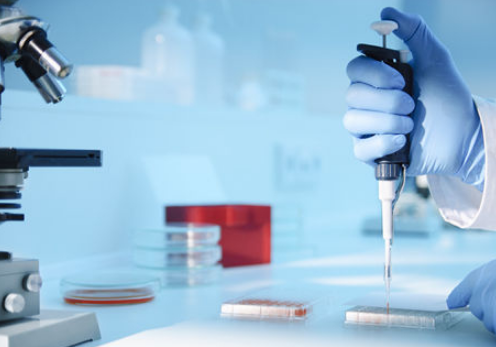
HONG KONG – Another promising candidate has emerged in the race to find a treatment for the COVID-19 coronavirus. San Diego-based Ansun Biopharma Inc. released positive results from a four-patient study of its DAS-181 candidate, which is being developed for the treatment of severe COVID-19 infection.

The clinical-stage recombinant biologic was evaluated as a 10-day treatment regimen of nebulized DAS-181 administered to four patients with severe bilateral viral pneumonia and hypoxemia. It seems that it may help reduce or eliminate some of the most significant symptoms associated with COVID-19.
“In the first 14 days of our study, the first two patients no longer required supplemental oxygen, and showed stabilized vital signs, increased oxygen saturation and resolution of infiltrates on chest CT scans,” said Zuojiong Gong, one of the study's principal investigators at Renmin Hospital of Wuhan University.
“The third patient, who had been a persistent SARS-CoV-2 carrier for more than 33 days, was completely virus-free before the end of the 10-day DAS-181 regimen and met all discharge criteria, and the fourth is currently undergoing treatment and showing positive trends,” Gong said.
Unlike other therapeutic approaches, DAS-181 may inhibit the virus through multiple potential mechanisms of action, including modifications of the host receptor, interference with endocytosis, prevention of cell-to-cell spread and immunomodulation.
“The mechanism of action for DAS-181 in SARS-CoV-2 infection is still under investigation,” Nancy Chang, CEO and chair of Ansun, told BioWorld. “Cleavage of sialic acid receptors on respiratory epithelial cells and the virus itself may decrease binding to primary and secondary host-cell receptors.”
That interference may result in decreased entry of the virus and decreased cell-to-cell spread.
“Other proposed mechanisms include immune modulation, as sialic acid is a key molecule in immune system regulation,” Chang added. “Laboratory studies are planned or in progress to further elucidate the mechanisms of DAS-181 activity.”
In the near term, Ansun is focused on initiating a small, randomized, double-blind, proof-of-concept trial in the U.S. to demonstrate the safety and efficacy of DAS-181 in COVID-19 pneumonia. This two-stage trial will enroll around 20 patients at U.S. medical centers. Ansun expects to expand enrollment after an interim review of the data.
“Pending the outcome of the trial, the study will be expanded to enroll additional patients, and involve additional sites in Europe and China,” Chang said. “In parallel, Ansun will continue to enroll patients in its ongoing phase III study for parainfluenza virus, and phase IIb study for influenza virus.”
In the long term, Ansun is exploring options for clinically developing, manufacturing and commercializing DAS-181 for multiple indications throughout the world, alone or together with select strategic partners and collaborators.
The decision to conduct this first study at the Renmin Hospital of Wuhan University is understandable, given that the hospital was at the initial epicenter of the pandemic. Chang cites both the expertise of physician researchers and a sufficient patient population as reasons to hold trials there, as it has allowed for efficient enrollment and high-quality clinical data collection.
Ansun is also presently examining its commercial options in China, including discussions with potential partners. “At the same time, the company is positioned to further expand its operation in China, including R&D, clinical development and potentially manufacturing capabilities as well,” said Chang.
Chinese authorities have approved Ansun’s protocol amendment to enroll COVID-19 patients under its existing parainfluenza phase III and influenza phase IIb studies. The company is also awaiting the final approval of a new IND for COVID-19 in China.
Ansun has a lot riding on the DAS-181 candidate.
It is now being tested in a worldwide, multicenter phase III trial for the treatment of hospitalized, immunocompromised patients with lower respiratory tract parainfluenza virus infections. A phase IIb trial in China is ongoing for the treatment of severe hospitalized influenza infections.
Ansun is also investigating additional uses of the product in immuno-oncology and other applications. The biotech company is also looking at “promising pipeline products in the respiratory, infectious disease and oncology spaces through in-licensing, partnering or acquisition opportunities.”
“All of these studies may eventually lead to market approval for DAS-181 in the treatment of COVID-19 as well as influenza and parainfluenza in China, if its clinical efficacy and safety can be further demonstrated,” said Chang.